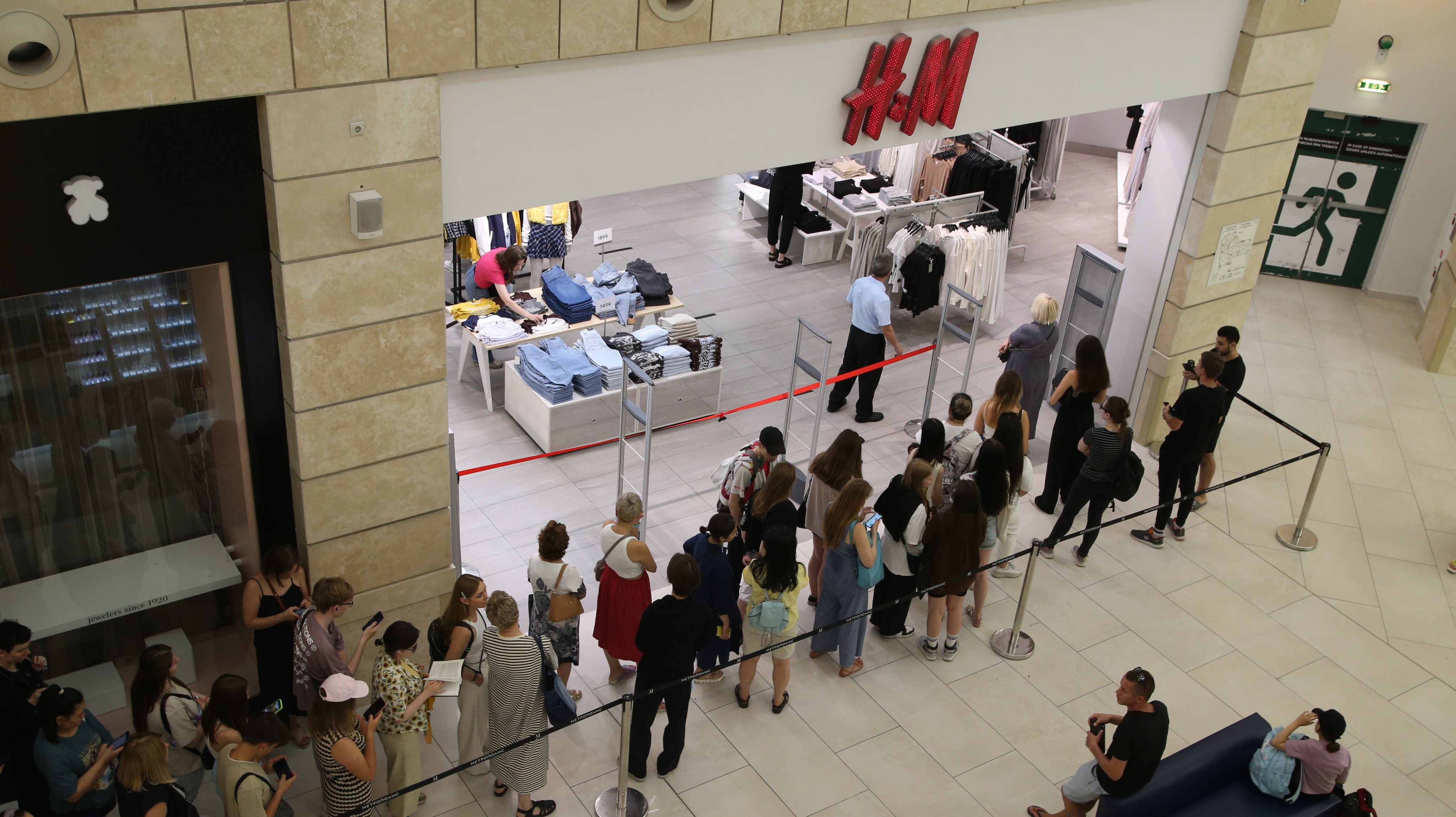The last week in Moscow was marked by the long queues that formed in several shopping centers. Customers waited long enough to enter the stores of the Swedish chain H&M, before it closed its doors for good and left Russia, after the invasion of Ukraine.
News agencies such as the Associated Press and Reuters witnessed queues in front of H&M stores in shopping malls such as Aviapark and Metropolis, both in the Russian capital. “It’s going to close, that’s why we’re here,” one customer told Reuters. “I’ll buy whatever there is, whatever it is.”
Long queues formed outside H&M stores in Russia as the Swedish retailer temporarily reopened its brick-and-mortar stores to sell its remaining stock before leaving the country altogether along with other Western companies. #WSJWhatsNow pic.twitter.com/HjAJhMcKB3
— The Wall Street Journal (@WSJ) August 9, 2022
The Russian market was until now the sixth largest market for H&M. The company expects that leaving the country will cost around 200 million euros. Six thousand employees are expected to be affected by the decision to leave.
H&M is still trying to sell its 170 stores and distribution center in Russia to Russian buyers, the Kommersant newspaper reported. But, the newspaper recalls, it is unlikely that there is “any actor in the Russian market with the capacity to manage such a large network and be able to ensure the supply of the necessary volume of clothing.”
The also Swedish Ikea has closed its physical stores in the country, but since July 5 it has been carrying out place Russian some products. The company will continue to sell products. online “As long as there is Values“.
Ikea has already publicly announced that it wants to sell its four factories in Russia, but will close its stores and offices in the country, as well as those in Minsk, Belarus. The company confirmed that it will lay off most of its 15,000 employees in both countries, giving them six months’ salary as compensation.
While some Russians are trying to get the latest products from Western companies before leaving the country for good, others are looking for a way around the system. This was the case of Aleksandr Gorbunov, an investor from Krasnoyarsk, who began importing clothes from Zara – a company that left the country in March – and whose story was told by The Guardian.
Thanks to the customs union with the countries of the Eurasian Economic Union (which includes Armenia, Belarus, Kazakhstan and Kyrgyzstan), Russia continues to have access to various imported goods from abroad, circumventing the brand rights of companies. After Zara clothes, perhaps H&M pieces and Ikea furniture will be the next products to circulate in Russia.
Source: Observadora
